Student Support
A supportive training environment
[[ PAGE BANNER: see the home page instructions for adding new images. Image should be 864 pixels wide by any height. ]]
Our Track Record
We hold regular discussions with our students to obtain their insights and feedback and, as a result, have initiated many new efforts along these lines while also increasing the visibility of the support that we provide.
• To help alleviate the financial burdens of applying to graduate school, we provide proactive application fee waivers to students recruited through pipeline programs, and also reimburse the costs of official transcripts and score reports for students who matriculate in the program. All TPCB graduate students receive guaranteed stipend support, subsidized housing that is on or near campus, health insurance, as well as an annual research allowance that can be used for moving expenses, research supplies including a computer or laptop, and attendance at scientific conferences.
• To assist new students with the transition to graduate school and life in New York City, our TPCB Student Orientation Committee hosts a series of welcome events during the summer upon arrival on campus. In 2021, we also launched a new TPCB Peer Mentoring program that pairs each incoming student with a senior student mentor to provide personalized advice and support. In 2022, we created new training in ‘hidden curriculum’ topics through workshops and our courses.
• To support our international students who come to TPCB from around the world, we work closely with graduate school staff to provide specific information for international students at our recruiting and onboarding events. In 2022, we also established a TPCB International Students Group, which is open to all TPCB students, to provide additional support, peer mentorship, and social events that celebrate our students’ backgrounds from around the world.
• To support students who may face challenges and stresses both within and beyond context of their graduate studies, we provide extensive mental health and wellness support through the three institutions. This includes access to free on-site counseling, referrals to medical professionals, and access to a variety of wellness programs.
• To support students who are also parents in balancing family life and responsibilities with their scientific training, we provide childcare and parenting support through the three institutions. This includes access to dedicated lactation rooms for nursing mothers, institutional childcare centers and backup care, resources for finding babysitters, nannies, and child enrichment programs, and information on NYC public and private schools.
• To ensure that students receive outstanding, thoughtful mentorship throughout their training, all TPCB faculty members are required to complete faculty training in mentorship that is provided by the three institutions. Faculty at MSK and Weill Cornell complete a 4-hour course based on content from CIMER, the Center for the Improvement of Mentored Experiences in research). Faculty at Rockefeller complete an online training module created by CITI, the Collaborative Institutional Training Initiative. Topics include roles and responsibilities of mentors and mentees, alignment of expectations between mentors and mentees, maintaining effective communication, promoting professional development, and providing a healthy and supportive work environment. Faculty are also encouraged to attend ongoing mentor training workshops and seminars that are organized across the three campuses. In conjunction, we provide our students with resources to help them make the most of their interactions with their mentors, both within TPCB and beyond. Incoming students are paired with faculty First-Year Advisors who assist them in selecting rotations, thesis labs, coursework, and in establishing an Individual Development Plan. Subsequently, all students maintain a thesis committee of at least four TPCB faculty members with whom they meet regularly to support their scientific training and professional development.
• To foster a culture of outreach to the next generation of scientists, we strongly encourage all TPCB students to participate in outreach programs. Our students are outstanding role models for young scientists, and have taken on leadership roles in the Tri-Institutional Outreach Committee, which focuses on STEM outreach initiatives for K-12 through undergraduate students. Our students also take leadership roles and participate actively in ongoing outreach programs and events such as those organized by the Weill Cornell/MSK High School Catalyst program, RockEDU Science Outreach, Genspace, and the New York Academy of Sciences.
Our Ongoing Commitment
We continuously evaluate the effectiveness of our policies and activities in promoting a supportive environment in science. We conduct an annual TPCB Climate Survey and review the results with our students at the TPCB Student Town Hall each year. The results are also shared with institutional leadership and with our TPCB Faculty. These and other ongoing discussions with our students allow us to identify issues that require further attention, which we then act upon, and the TPCB leadership team is accountable for ensuring that these issues are addressed. We also engage in frequent, active discussions with the academic leadership at the three institutions to ensure that our students are provided with the support that they need to thrive.
We seek to be the leaders in the field at promoting a supportive environment in science.



